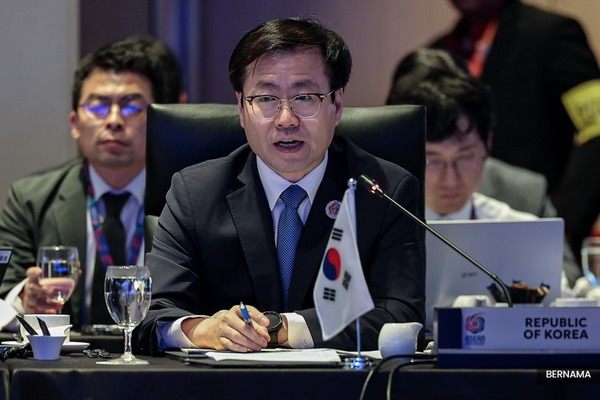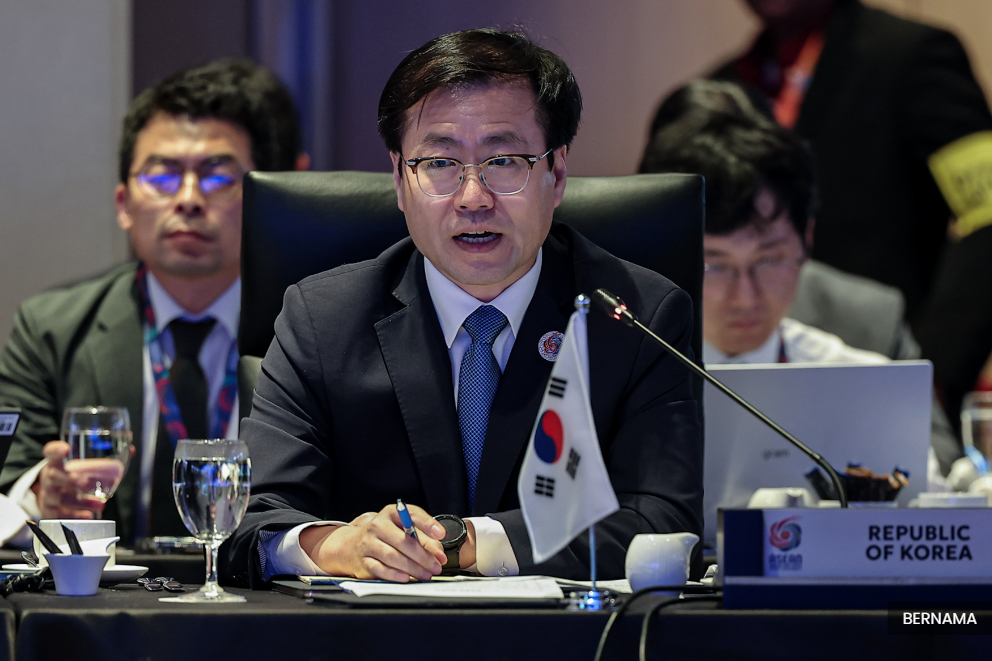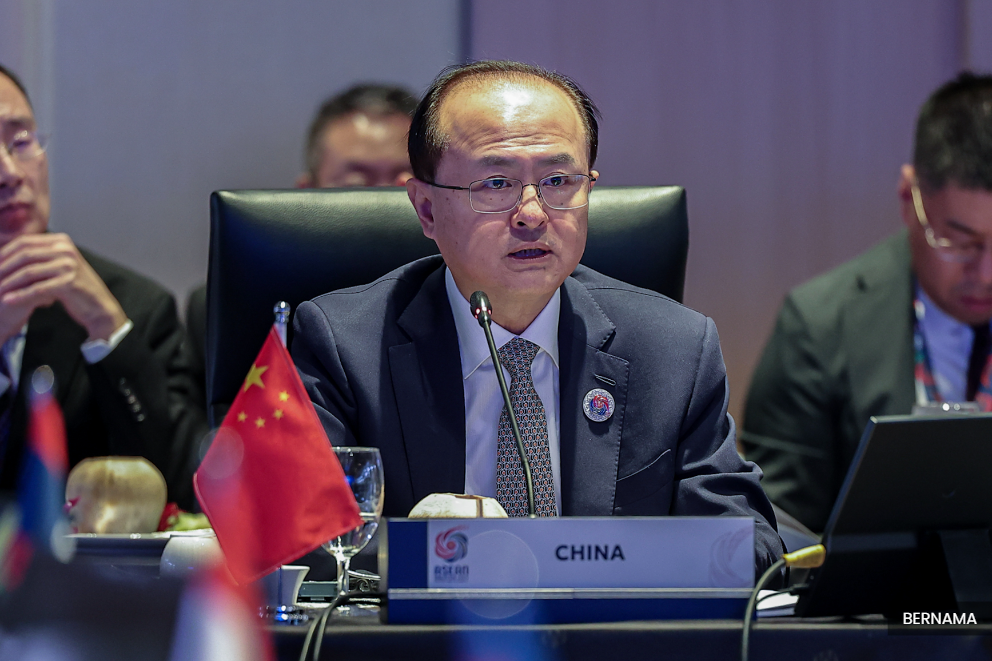KUALA LUMPUR, Sept 24 — Asean, together with China, Japan, and South Korea (Asean+3), must join forces to maintain and stabilise their sophisticated and delicate supply chain network like clockwork, while coping with changes in the global trade environment, said South Korean Trade Minister Yeo Han-koo.
He described supply chain resilience and cooperation as a common interest among the Asean+3 economies, which for decades have developed a complex and interdependent global supply chain network.
“Asean+3 are connected through a multiple web of trade agreement networks,” Yeo said in his opening remarks at the working lunch of the 28th Asean Economic Ministers (AEM) Plus Three Consultation, held on the sidelines of the 57th AEM and Related Meetings today.
He noted that South Korea has bilateral free trade agreements with both Asean and China, while South Korea and Japan are also linked via the Regional Comprehensive Economic Partnership (RCEP).
“In fact, if we combine all these economies of Asean+3 countries, the population accounts for about 28 per cent of the world, the gross domestic product about 27 per cent, and in terms of manufacturing value-added, it accounts for almost half of the world’s manufacturing activities,” Yeo said.
Meanwhile, in his opening remarks, Chinese Commerce Vice Minister Yan Dong reiterated China’s readiness to boost regional cooperation through the Asean+3 framework, describing it as a mature mechanism that has long contributed to East Asia’s sustainable growth and stability.
He added that Beijing support stronger trade and investment linkages with Asean, Japan, and South Korea.
“Plus Three cooperation is one of the most mature mechanisms. It has made a positive contribution to Asean sustainable development for a long time,” Yan said, speaking in Mandarin which was then translated into English.
He also highlighted that China’s trade with Japan and South Korea reached US$1.1 trillion (RM4.63 trillion) in the first eight months of 2025, marking a six per cent increase and accounting for 26.8 per cent of China’s total trade.
“So far, China has invested more than US$7 trillion (RM29.48 trillion),” Yan said.
The working lunch session was chaired by Investment, Trade, and Industry Minister Tengku Datuk Seri Zafrul Tengku Abdul Aziz, and brought together Asean economic ministers and their counterparts, including Japan’s Economy, Trade, and Industry Minister Muto Yoji, as well as senior officials from the Asean Secretariat.



